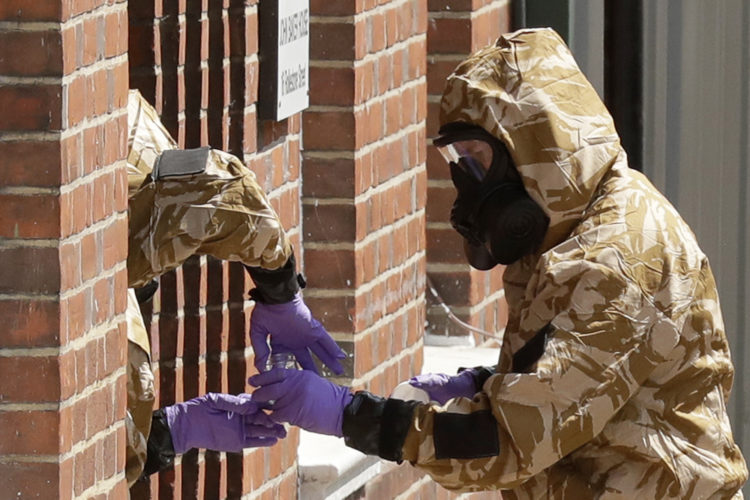In March, a former Russian military intelligence officer that sold state secrets to the British government was attacked in Salisbury, England. While he and his daughter survived the ordeal, the international ramifications were swift once the nerve agent used was identified as one of specifically Soviet manufacture, suggesting to U.K. officials and their allies that Russian operatives had conducted the attempted assassination as retribution for the former officer, Sergei Skripal, betraying the Russian state.
The U.K. and a number of its allies responded not only with tough rhetoric but with the weapons of diplomacy: economic sanctions and the expulsion of Russian officials and diplomats from within their nation. Russia, claiming innocence throughout, responded by expelling foreign diplomats from each involved nation in kind.
For the most part, these diplomat expulsions tend to go on without much concern from the general public. It can be difficult to assess the value American officials serve from their offices on foreign soil within the vastness of the nation’s foreign policy apparatus, especially because bureaucracy, while often necessary, rarely makes for engaging headlines. However, many officials operating on foreign soil have another, less publicized, responsibility that comes with direct ties to the nation’s defense efforts: intelligence handlers. When Russia expelled American diplomats from Moscow, they didn’t only set American bureaucracy back, they also dealt a significant blow to U.S. intelligence gathering efforts within Russia as well.
“The Russians kicked out a whole bunch of our people,” John Sipher, a 29-year C.I.A. veteran that previously ran the agency’s Russia program said. “Our station in Moscow is probably really small now and they are under incredible surveillance.”
Now, as the midterm elections approach, multiple reports from within the C.I.A. and other intelligence agencies suggest that the U.S. does not have nearly the same level of connectivity it did leading up to and following the 2016 election, which was able to assess with high certainty that manipulation efforts were not just Russian in origin, but tied directly to the Russian national government (an important distinction to make in terms of foreign relations).
While the last presidential election came with warnings from intelligence agencies regarding meddling efforts, the 2018 election cycle has instead involved warnings from social media platforms and tech companies. Facebook and Microsoft have both issues statements recently regarding foreign influence campaigns helmed by both Russia and Iran, but aside from rehashing concerns about 2016, American intelligence officials have made little in the way of new statements regarding ongoing efforts. American officials often say they’re certain the efforts are ongoing but seem to have little more to offer — could it be that this reduction in actionable intelligence is the result of nothing more than some expelled American diplomats? Probably not — instead, it seems possible that there is another problem tied to Russia’s use of the Novichok nerve agent in the UK: the Kremlin is working behind closed doors to send a powerful message to the intelligence community.
The assassination attempt on Sergei Skripal on U.K. soil in March was not an isolated incident but rather the highest profile of a slew of assassinations and attempts being executed by Russian officials as a part of what appears to be a larger counter-intelligence operation. Russia, aware of how their efforts were outed following the 2016 presidential election, has set about aggressively sealing off any potential leaks and has been sending high profile messages to any others that consider crossing the Kremlin: even decades later, Mother Russia will have her revenge. The New York Times reports that C.I.A. officials believe many of their assets are still alive in Moscow but are simply laying low while Russian counter-intelligence operatives make passing information far more dangerous than it had been previously.
“The Russians are very focused and upset,” Sipher said. “They have shown they are willing to kill sources.”
Already have an account? Sign In
Two ways to continue to read this article.
Subscribe
$1.99
every 4 weeks
- Unlimited access to all articles
- Support independent journalism
- Ad-free reading experience
Subscribe Now
Recurring Monthly. Cancel Anytime.











COMMENTS